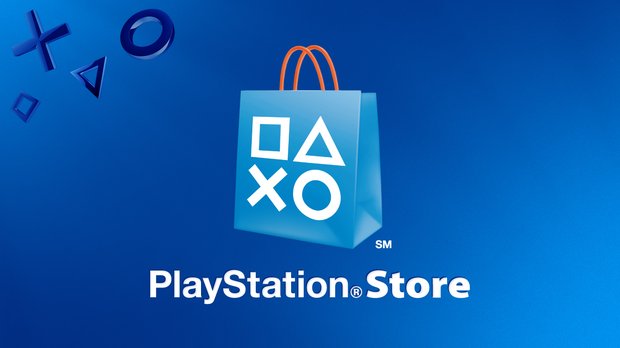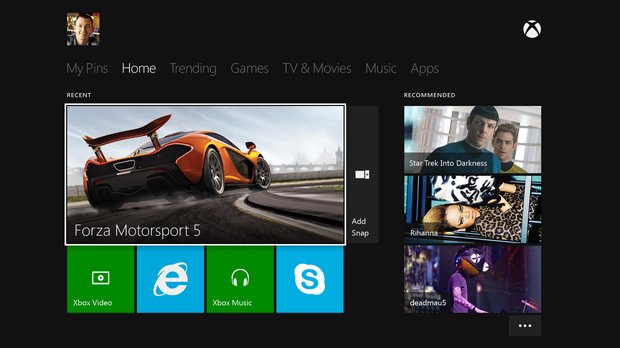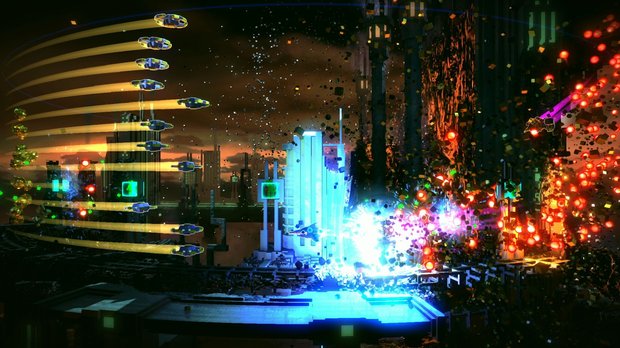Digital console gaming is not as big as you think. So how do we fix that?
A bizarre and slightly disheartening bit of news, this one. According to a new report by industry analysts Kantar WorldPanel, 72% of UK console gamers still exclusively buy boxed games. Just shiny discs. No digital downloads. At all. And thus, the great digital gaming revolution did appear to take a blow-dart to its bulbous balloon of supposed domination, and began to look about as revolutionary as punk ultimately was. (Let it go, people, it lasted three years. And no, Green Day do not count)

So, is the grand future of gaming now entirely buggered? It would be a damn shame if it was, because digital was set to improve everything. Democratic console publishing for all. Cheaper games. More accessible games. Multi-platform, play-anywhere magic. A gross reduction in the number of plastic boxes cluttering up your house and tripping over the cat. The only people it wasn’t set to benefit were IKEA’s shelf department, but those guys will be fine. Because you know, books and stuff. Nick-nacks and the like. But no, I don’t think this news is entirely disastrous, however surprising it may be. I do, however, think that it points towards some very important ways in which the current form of digital retail is failing, and of course toward the related improvements that need to be made in order to fix it.
It’s very easy to gnash and wail, and decry 72% of the UK gaming public as backward luddites, techno-fearing Morlocks who probably still shave with a sharpened rock. But we shouldn’t. Because while new things always take a while to stick for the less engaged members of any audience, if digital is still only grabbing 28% of the potential gaming market after a whole console generation of availability, then it’s obviously not appealing to everyone as well as it could.
So how does it improve? It seems to me that there are a few key areas that need fixing. First and foremost, pricing and visibility really need to be better. Once they’ve decided to buy something--anything--nothing speaks louder to a purchaser than cost. And that’s an area where, despite the vastly reduced overheads involved, digital console games have been inexplicably failing for years. If someone sees a new AAA game on the PS Store for £10-15 more than they were expecting, and can then find the disc version on Amazon or a specialist retailer’s site for the RRP or less, suddenly the convenience of not having to wait a couple of days or go to the shops disappears like so much mist in a gale.

Secondly, awareness of digital games still is not what it should be. Sony made great gains in that area on the PS3, regularly giving smaller, digital-only releases equal billing on the console’s dashboard. But Microsoft’s notoriously ‘selective’ promotion of XBLA and indie games put a choke-hold its downloadable market, letting down potential buyers and developers in equal measure. Simply, MS needs to fix that ASAP with the Xbox One, and Sony really needs to consistently deliver on its promise of equal billing for all games throughout the PS4’s life.
Outside of the obvious stuff, platform holders really need to push the message of ‘Everything digital, all the time’. That way, even the most staunchly mainstream, AAA gamer might eventually segue into the more leftfield offerings of indie downloads. If Billy-Bob Gunshooter can find Far Cry 4 on his console’s download store at a competitive price, he’ll get tempted. And if he buys it and has a good experience, he’s likely to become more culturally naturalised to the whole process. And if browsing that store for future man-shooting purchases becomes a standard part of his console use, and if he finds some promising, unexplored smaller games at an appealing enough price to inspire an impulse purchase, then we really start the ball rolling.
That notion of the impulse purchase is key. Consoles are starting to make the process of buying games as quick and convenient as it can be, but they haven’t yet brought down the various psychological barriers that stop some customers from changing their retail habits. That stuff is harder to break than you might think, and we need a concerted effort to chisel away at it over the next few years.
Sign up to the GamesRadar+ Newsletter
Weekly digests, tales from the communities you love, and more

Because what’s good for digital is good for all of us. It’s a goddamn tragedy that 72% of UK gamers probably still haven’t played Braid, or Limbo, or Thomas Was Alone, or Geometry Wars 2, or Resogun or Outlast. And it’s a goddamn tragedy that the creative, talented, industrious folk who made them aren’t reaping the full potential rewards of their great work. Of course, there’s an ambient, tertiary issue at play here that the industry can’t control, in the form of inconsistent broadband services throttling the physical process of buying digital. That will improve gradually, but while we wait, we really need to be doing everything we can to improve the areas that we can tackle. Because now that consoles have proven that a digital sales market can be done, they absolutely must turn their attention to how it is done.



